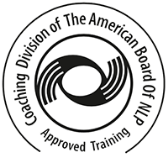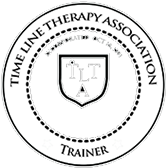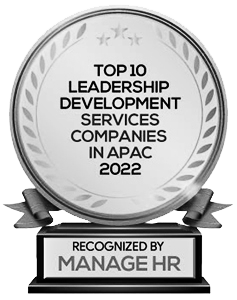'Don't put the blame on me'
Most of my holidays have one prominent song that seems to poetically connect the sound of the tune with the memories and feelings experienced on that trip. I remember when I first heard this song in 2017. Having just arrived in Germany, my husband and I were enjoying a smooth drive on the autobahn (one of my favourite things to do) on the way from Hamburg airport to my hometown of Bremen. Upon turning on the radio, the first song to play was this gritty, powerful number 'Human' by Rag'n' Bone Man. I connected instinctively with the sound, rhythm, and the artist’s voice; it somehow touched my soul. Have you ever experienced this, when you hear a song for the very first time and you instantly connect with it? And you just love it? Well, this was what happened to me in that moment. It was only later when I realised the deep, meaningful message that it conveyed - “I am only human, after all – don’t put the blame on me.”About blame
So many people I know, love and care about still frequently practice the 'ancient art of blaming'. But who do we blame? We blame our work colleagues, managers, leadership teams, our neighbours, friends, life partners, children, parents, and 'that special' family member; and the list goes on. Sometimes we even blame people we do not personally know, like people of other races or people with a different skin colour. And let's be honest, we some how have been trained to blame politicians, on a regular basis.Blame readiness
Which brings us to the next set of questions: Why are we so ready to blame? Why are we so ready to blame others? What is the reason for it? What is the benefit? Well, let's think about it. We are most likely to blame others when faced with an unpleasant situation. And we are most likely to blame when we perceive the outcome or the circumstance to be negative for us or for the people we care about. We are happy to blame when we are not happy.I don't like it and it's not my fault
Well, let’s have a closer look at the 'tradition of blaming' for a moment. When I cast my mind back to times when I was involved in a blaming situation ( either as a ‘giver’, ‘receiver’ or ‘observer’) , I noted that whilst it can sometimes help, the vast majority of the time blaming was of no use at all. The instinct to blame others surfaces when something is not in alignment with our expectations, and therefore we want to make something or someone else, (but not ourselves!) responsible for it. In other words, I am not happy with [insert outcome] and it is not my fault.Outsourcing one's responsibility for happiness
The act of blaming others is essentially a kind of outsourcing of one’s personal responsibility for being happy. We want to be happy with a certain outcome, or, at the very least, be ok with it. If these two emotional states are not available to us, the urge to blame rears its less-than-resourceful head. Let’s check the 'unresourcefulness' of blaming with a few self-reflective questions:- Does blaming feel uplifting?
- Does it feel inspiring?
- Does it feel meaningful?
- Does it feel good for you?
- What about others? How do they feel being blamed?
- Does it help to improve the situation in the short-term?
- Does it help to improve the situation in the long-term?
The outcome of blaming
Especially the answer to the last question from the list above demonstrates that attributing blame elsewhere hasn't the capability to change - even slightly – a single thing about the situation itself. Therefore, it doesn't change the outcome in a way so that we would feel better about it. OK, in the short term, it might feel good to know that it wasn’t our fault. But in the long term? Does it really make us feel so much better? And what about the other side effects blaming can have? Think about personal reputation, team / family morale, etc. It is essentially an unproductive behaviour, an unresourceful habit.Transforming an unresourceful habit into a resourceful one
Let’s face it, blaming is part of our lives. Either we do it ourselves or we interact with people who practice blaming regularly. One could say, it’s part of our human DNA, a natural tribal instinct. But does it have its own gains? Yes, of course, as every habit we practice does. In coaching we call those habits strategies and every strategy has a perceived positive effect. Therefore, it is important to be realistic and to recognise the short-term benefits that ‘relief blaming’ can have, namely, ‘It wasn't my fault. I cannot be held responsible. I am safe.’ But is there a way to leverage the habit of blaming even more? Is there a way to make a positive impact in our lives and the lives of others? Is there a way to move beyond blaming words to meaningful action? Let’s explore…The art of constructive blaming
The question therefore is: How can we perform constructive blaming? Here are some simple suggestions, thoughts, ideas, and a mini Conscious Leadership framework, about what one could do to transform blaming into an uplifting, empowering, meaningful and constructive habit.STOP - REFLECT - ACT
Next time you recognise that you are blaming or about to blame practice the following:1| STOP
Take a conscious pause, breath and recognise the habit without judgment. In other words: be gentle with yourself, accept the situation as it is, give yourself a quirky internal smile to let you know ‘ha, I’ve got ya’ and then...2| REFLECT
Take a moment to bring your unconscious behavior into your consciousness by pondering about how you got here:- What triggered the urge to blame?
- How did I feel before the blaming began?
- How do I feel now, afterwards?
- What is the payoff for me?
3| ACT
Ask yourself these three empowering questions:- Accepting the negatives of the situation, which led to the blame (unwanted outcome, unmet expectations) for what they are, rate them on a scale from 1...10 (1 = not at all .... 10 = very much) by asking yourself:
- If your answer is above a 7, then brainstorm with yourself:
- Then concentrate on the most practical and most impactful action you could take to drive a positive change:
Meet the author
Susanne Rauer, Executive Master Coach at GAIA Coaching - Executive Coaching Sydney, April 2019.
Ask a specific question
Please feel free to send me a LinkedIn message with your feedback or book in a 15 min call for any specific questions you may have. I am looking forward to continued meaningful connections.
An Executive Coaching Point Of View (ExCoVi)
As an Executive Master Coach and Trainer, I am very fortunate to work with various talented, high-achieving and wonderful people. Every time I coach, I learn something new about my client, our society and myself. The summary of thoughts is based on emerging themes across all kinds of interactions I have; be it one-on-one executive coaching, group coaching or coaching training. ExCoVis are meant to invite people to think differently based on scientifically or statistically proven understanding and lateral thinking. None of the content is meant to offend anyone in any way and is rather an invitation to discuss different executive points of view with respect and integrity. The content is shared to raise awareness and to inspire people to integrate their conscious and unconscious mind and therefore transform unconscious behaviour into conscious behaviour.
GAIA Coaching – Your boutique executive coaching partner – Sydney, Australia.





